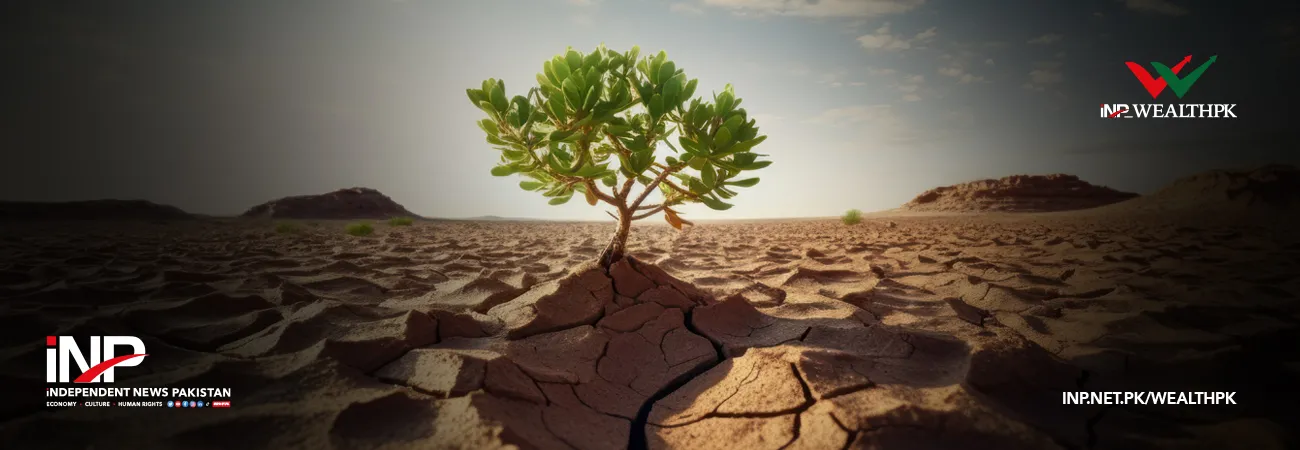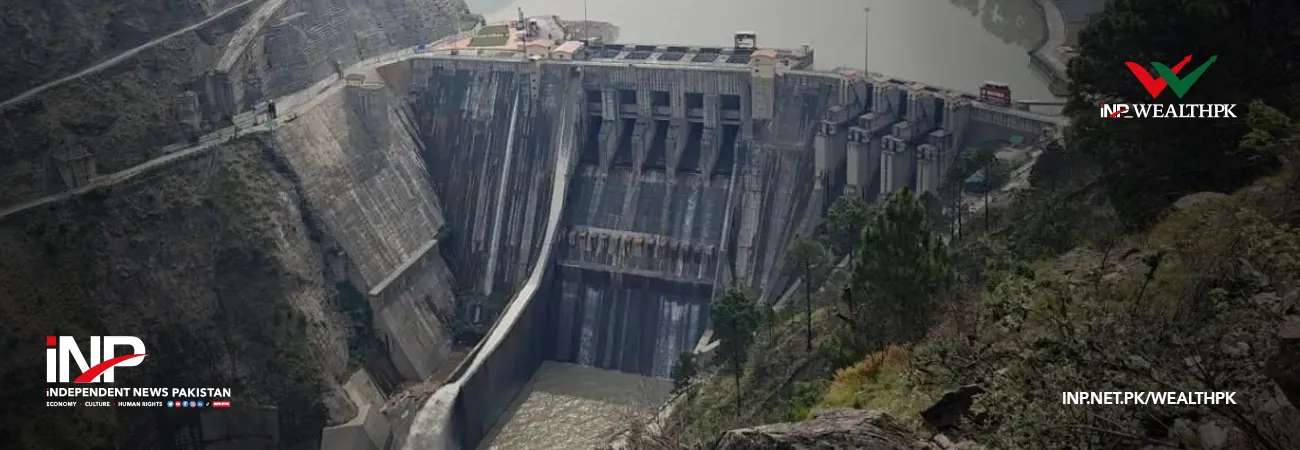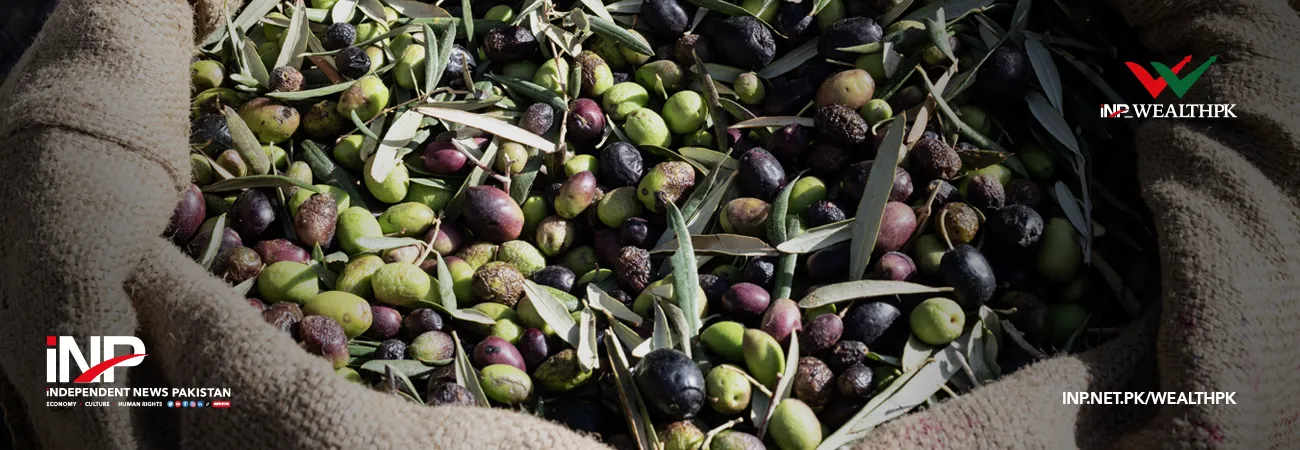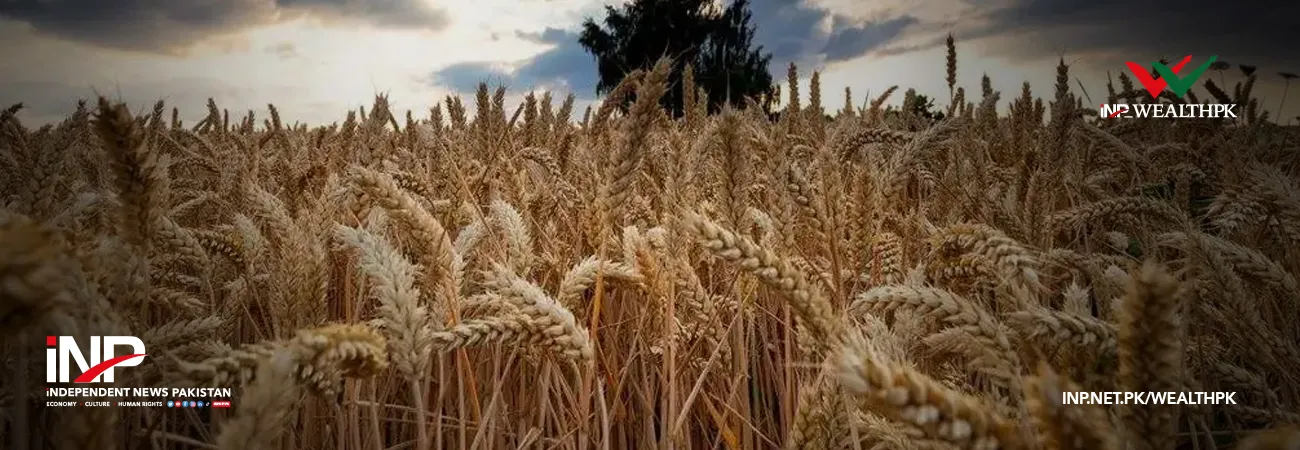INP-WealthPk
Amir Khan
Pakistan needs to analyse the potential impacts of climate change on its economy with a specific focus on the uncertain aspects of water resources, glacial losses, rising sea levels and land degradation. “Pakistan heavily relies on the Indus Basin for its water supply. However, with the increasing severity of extreme events, such as floods and droughts, the future availability of water remains uncertain. There are projections of changing annual rainfall patterns, which may lead to shifts in seasonality. This uncertainty poses a significant challenge for planning and managing water resources, affecting various sectors of the economy that rely on a stable water supply,” noted a senior environmental economist, while talking to WealthPK. He pointed out that the impact of climate change on Karakoram glaciers, a vital water source for the Indus Basin, was a subject of debate.
The environmental economist added that while the shorter-term impact of climate change on water resources might be less significant than other human-related issues, there was a strong likelihood that longer-term temperature rises would lead to glacial loss, resulting in reduced water runoff and changing seasonal patterns. “This will affect agriculture, hydropower generation, and overall water availability for economic activities.” He pointed out that sea level rise posed a significant threat to coastal zones worldwide, and Pakistan's coastline was no exception. “The Indus Delta, covering approximately 4,750 kilometres, is particularly vulnerable, with around one million people residing in the region. Historically, this number was higher, but upstream diversions of freshwater resources have driven migration away from the delta.”
He said sea level rise had intensified saline intrusion, which degraded land quality and agricultural yields, impacting

marginalised communities. “The economic consequences include loss of agricultural productivity, displacement of communities, and increased vulnerability to natural disasters.”
Source: World Bank Climate Risk Profile Report
The environmental expert stated that approximately 80% of Pakistan's area was arid or semi-arid, making land degradation and desertification major concerns. “Unsustainable human development practices, such as overgrazing, overexploitation of water resources, over-cultivation, and excessive use of fertilizers, contribute to the degradation of land quality and expansion of dry lands.” “This process has severe consequences, including sedimentation of reservoirs, dust storms, and loss of biodiversity. The economic implications are evident in reduced agricultural productivity, increased pressure on natural resources, and challenges for sustaining livelihoods in affected regions.”
The environmental economist said it was evident that climate change posed significant challenges to Pakistan's economy as the uncertainty surrounding water resources, the potential glacial loss, rising sea levels, and land degradation all had far-reaching economic impacts. He said addressing these issues required comprehensive planning, policy interventions, and international collaboration to ensure sustainable development and resilience in the face of a changing climate. “Initiatives like ‘Clean and Green Pakistan’ are essential steps towards restoring the country's natural environment and fostering economic growth while protecting vital ecosystems.
Credit: INP-WealthPk













